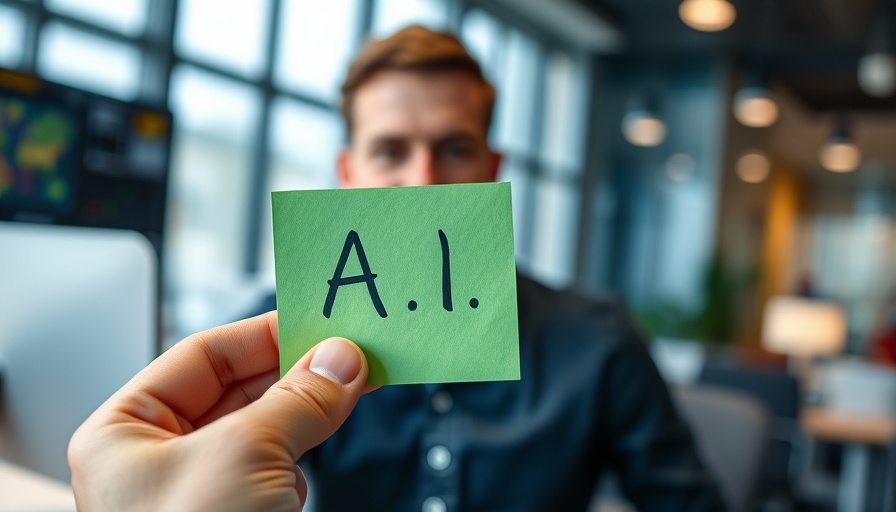
Understanding Generative AI's Impact on Employment
Artificial intelligence continues to permeate various facets of our lives, fundamentally reshaping the job market. A significant new study conducted by the United Nations International Labour Organization (ILO) reveals that around 25% of jobs worldwide are at risk of transformation due to generative AI. However, rather than leading to widespread job loss, the study posits that we may see a redefinition of roles—one that is likely to change how we work, rather than if we work.
The Role of Women in High-Risk Jobs
A closer examination of the findings shows an unsettling trend: women and clerical workers are at the forefront of this transition. In high-income countries, positions facing the highest risk from AI innovations account for 9.6% of female jobs, nearly three times more than their male counterparts. Interestingly, 4.7% of women's jobs are in the highest-risk category globally, compared to just 2.4% for men.
The primary culprit? The overrepresentation of women in clerical and administrative roles that emphasize repetitive tasks, like data entry and scheduling—tasks that AI is well-suited to handle efficiently. While it's likely these positions won't vanish entirely, the quality of jobs may deteriorate as partial automation leads to fewer responsibilities, stagnating wages, and increasing insecurity.
Bridging the Skill Gap
The urgency for targeted solutions is clear. If businesses and policymakers don’t act quickly to provide training and support, many women may find themselves unable to adapt in a changing economic landscape. This highlights the importance of role redesign and ongoing education to prepare workers for new responsibilities, emphasizing the need for a proactive approach to labor market transformations.
Global Disparities in Job Vulnerability
Examining the global situation reveals further disparities, given that the impact of AI is unevenly distributed across different regions. For workers in lower-income nations, a different set of challenges may arise, as technological access and educational resources vary greatly. This could leave many confined to underwhelming roles that offer little in the way of growth or security.
Facing the Future with Resilience
As we navigate this uncertain terrain, understanding the implications of AI is critical. In particular, it is essential to acknowledge the human stories behind these statistics. Many individuals may feel anxious about their job security as AI grows more sophisticated, but it's crucial to focus on adaptability and resilience. Workers should embrace continuous learning and advocate for inclusive workplace policies that prioritize retraining and upskilling opportunities.
The shift towards generative AI offers a unique opportunity for growth and evolution in the workplace. With the right approach, we can transform potential threats into avenues for innovation and inclusion. Interested in exploring how to support this transition in your own role? Find out more here!
 Add Row
Add Row  Add
Add 




 Add Row
Add Row  Add
Add 

Write A Comment